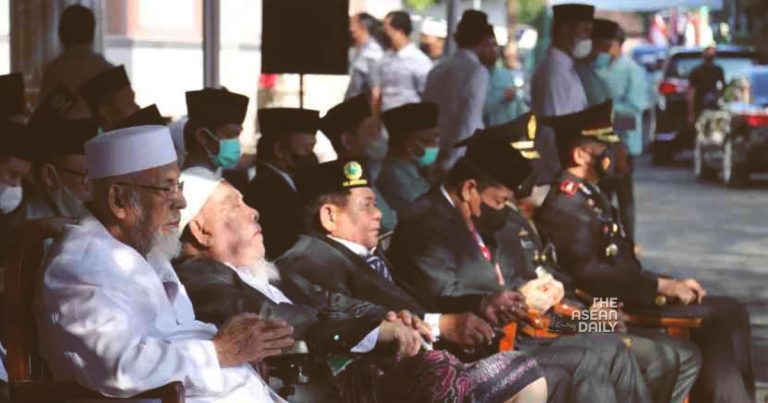25-8-2023 (JAKARTA) Jemaah Islamiyah (JI), an al-Qaeda-linked militant group operating in Indonesia, is reportedly making strategic moves to infiltrate political parties in a bid to garner support for its mission of establishing an Islamic state in the predominantly Muslim nation, according to analysts and a former militant.
This shift in tactics signifies a departure from JI’s historical reliance on violent attacks. The move comes ahead of Indonesia’s legislative, presidential, and regional elections scheduled for February 14 next year, which will set the nation’s future political course. President Joko Widodo is concluding his second and final term, marked by significant economic and infrastructure development, including the ambitious $32 billion Nusantara capital city project on Borneo island, slated for completion by 2045.
The outcome of the 2024 elections will determine whether Widodo’s vision for the new capital and robust economic growth becomes a reality. These development objectives, however, are not aligned with the militants’ priorities, which revolve around reshaping Indonesia’s governance to align with their interpretation of Islam.
JI’s strategy involves establishing a presence within political parties to gain influence over both parliament and the executive branch of government. Islah Bahrawi, an expert on radicalism, extremism, and terrorism prevention at Densus 88, explained that JI aims to “infiltrate and influence political parties to carry out their agenda of establishing a caliphate in Indonesia under Shariah law.”
Muhamad Taufiqurrohman, a senior researcher at the Center for Radicalism and Deradicalization Studies (PAKAR) in Jakarta, added that their objective is to “change the trajectory of Indonesia to become an Islamic state.”
The shift from violence to political infiltration marks a significant change in JI’s approach. Previously, the group was responsible for some of Indonesia’s deadliest terrorist attacks from 1999 to 2009, including the infamous 2002 Bali bombings.
This strategic shift followed a series of police operations and arrests of numerous members, including its leader, Para Wijayanto, in 2019, which weakened the group significantly. During police questioning, Wijayanto revealed that the group had “about 6,000 to 7,000 members” dispersed across government institutions and civil and religious organizations.
JI’s foray into political infiltration became evident when Farid Ahmad Okbah, founder of the Indonesian People’s Dakwah Party (PDRI), was arrested in November 2021. He was suspected of being a member of JI’s consultative council and was subsequently sentenced to three years in prison for terrorist activities in December.
Sofyan Tsauri, a former member of al-Qaida Southeast Asia who now aids police with de-radicalization efforts, believes that JI’s influence on politics is limited. He contends that while they may be vocal and able to shape public opinion, their influence is not substantial. Sofyan, who was arrested in 2010 for procuring weapons for the local al-Qaida affiliate, was released from prison in 2015.
Muhamad Taufiqurrohman from PAKAR asserts that any political candidate supported by JI is likely to face resistance, as the majority of Indonesian Muslims are moderates and do not align with the militant group’s ideology.
Meanwhile, JI’s rival, Jemaah Ansharut Daulah (JAD), the Indonesian affiliate of Islamic State (IS), has issued threats on social media, suggesting potential attacks on polling stations that are “within its reach,” according to Sofyan. He warned of the dangers posed by JAD, which views democracy as a man-made law and a creation of Satan. Security forces are already on high alert in response to these threats.
Taufiqurrohman from PAKAR revealed that social media monitoring had indicated support from IS sympathizers in Indonesia, hinting at potential attacks against officials, members of Islamic political parties, or election participants. These supporters are reportedly considering carrying out attacks during the campaign period, not just on polling day. While counterterrorism sources have noted “indications” of militant groups making threats on social media as part of their propaganda, they have not indicated intentions to carry out actual attacks at this stage.




